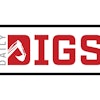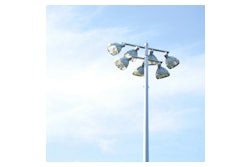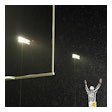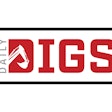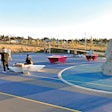Although it boasts 114 parks covering 600,000 acres, the Texas state parks system is far behind its peers in funding.
Given the size and stature of the Lone Star State, it's no surprise that more than 10 million people visit Texas state parks each year, generating an estimated $800 million in tourism revenue. But it does strike some observers as odd and downright embarrassing that words like "decrepit," "failing" and "jury-rigged" - the latter term referring to broken-down maintenance trucks - are being used to describe facilities operated by the Texas Parks & Wildlife Department.
Although it boasts 114 parks covering 600,000 acres, the Texas state parks system is far behind its peers in funding - its $56 million annual operating budget ranks 49th in the nation in terms of per capita spending. But as recently as 2003 Texas state legislators deemed saving their parks an unworthy venture.
During that year's legislative session, Rep. Harvey Hilderbran (R-Kerrville) introduced a bill that would have lifted an existing $32 million cap on contributions of sales-tax revenue derived from statewide sporting goods sales to the state parks account. Nine of Hilderbran's House colleagues co-sponsored HB 1292, but it died in committee. Eventually, the Legislature appropriated only about $20 million to state parks.
But after a recent proposal to sell portions of Big Bend Ranch State Park raised awareness of the poor condition of that park and other state-run facilities, Hilderbran received plenty of support when he introduced another state parks funding bill at the start of this legislative session. House Bill 6 would significantly increase support for Texas state parks, dedicating to the department all sporting goods sales-tax revenue, which is estimated at $105 million annually. As of Feb. 12, 110 of Hilderbran's 149 colleagues had committed to HB 6 (an identical companion bill in the Senate had received support from nine of 31 senators). "There are a lot of opportunities we have to expand our park system, not just expand them but make them nicer and make them more attractive to Texans for generations," Rep. Carl Isett (R-Lubbock), an HB 6 coauthor, told the Houston Chronicle.
Nevertheless, House Speaker Tom Craddick wasn't sold on the idea, instead advocating in January that the financial burden of operating 21 historic sites and state parks be shifted to the Texas Historical Commission. But HB 6's bipartisan backing, coupled with a groundswell of support from editorial writers and park activists statewide, prompted Craddick to back away from his proposal.
Evelyn Merz of the Sierra Club Houston Regional Group, who saw Craddick's proposal as another example of shortchanging state parks, called it an inefficient and senseless use of public funds. "The move to create a divide between historic and nonhistoric sites is contrary to the model adopted by the National Park Service and most states," she wrote in the Chronicle. "The Gettysburg Battlefield and the Grand Canyon are both handled by the National Park Service. Infrastructure and personnel costs benefit from economies of scale when the sites are consolidated under one administration."
Gov. Rick Perry, who initially questioned the wisdom of a substantial funding increase, is now convinced that parks funding has reached "emergency" status. He gave a public nod of approval to HB 6 in his State of the State address Feb. 6. "Let's spend the sporting goods tax on what it was collected for: to create first-class parks that give our people open spaces and fresh air for needed recreation."
Currently, HB 6 is in committee, but is expected to reach a vote before the Texas legislative session recesses in May.













